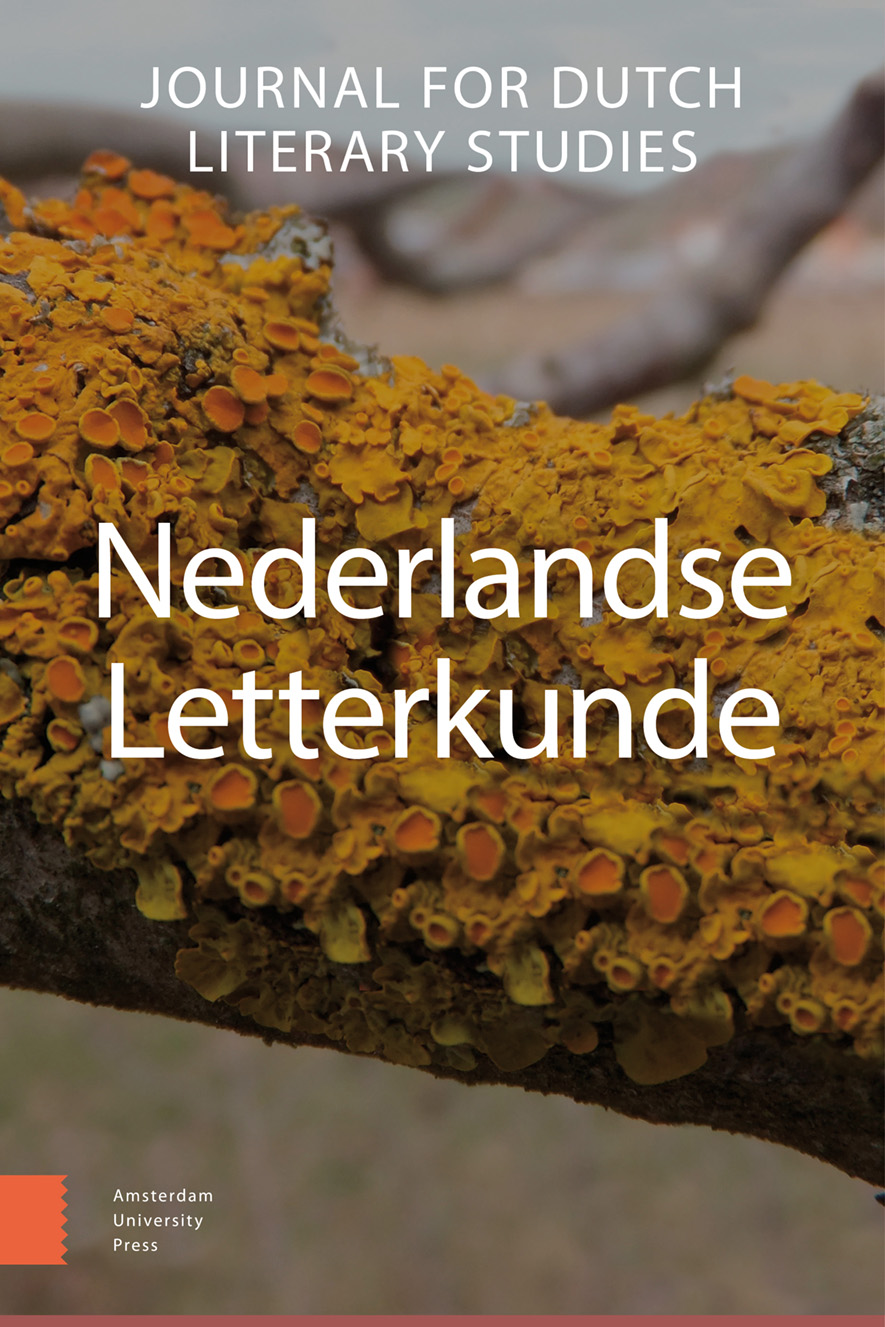- Home
- A-Z Publicaties
- Nederlandse Letterkunde
- Previous Issues
- Volume 19, Issue 2, 2014
Nederlandse Letterkunde - Volume 19, Issue 2, 2014
Volume 19, Issue 2, 2014
Taal:
Engels
-
-
oa ‘De vraag is deze: waarom is een akademisch neerlandicus zulk een heel ander mens dan een nederlands letterkundige?’
Meer MinderDoor Marieke WinklerAbstract The interrelation of public and academic literary criticism often leads to controversy within the literary field, especially when writers obtain an academic position. As Jo Tollebeek showed in Mannen van karakter (2011) and Nico Laan in Het belang van smaak (1996), the competition between the academic and public discourse on literature is inherent to the history of literary studies. What are the criteria for distinguish Read More
-
-
-
oa Het einde van de literatuur?
Meer MinderDoor Gillis DorleijnAbstract Rejecting internal analyses of the end of literature like the one by William Marx, the article argues that in order to assess the current position of literature an external scope is paramount. The book market seems to be the proper context to analyze the phenomenon literature. On the basis of recent research on literary institutions and using the latest data concerning trends in the book market, it is shown that the s Read More
-
-
-
oa Terug naar de tekst – maar waarom zouden we?
Meer MinderDoor Ralf GrüttemeierAbstract Though claims of a crisis in Dutch literary studies are in the air, the diagnosis is far from clear. Against this background, the article argues that first of all, systematic research into the practices and dynamics of knowledge production and knowledge dissemination in literary studies from a historical perspective is needed. As a step into this direction the article undertakes a case study of the explicit motivations of research Read More
-
Volumes & issues
Most Read This Month
Article
content/journals/13845829
Journal
10
5
false
nl


